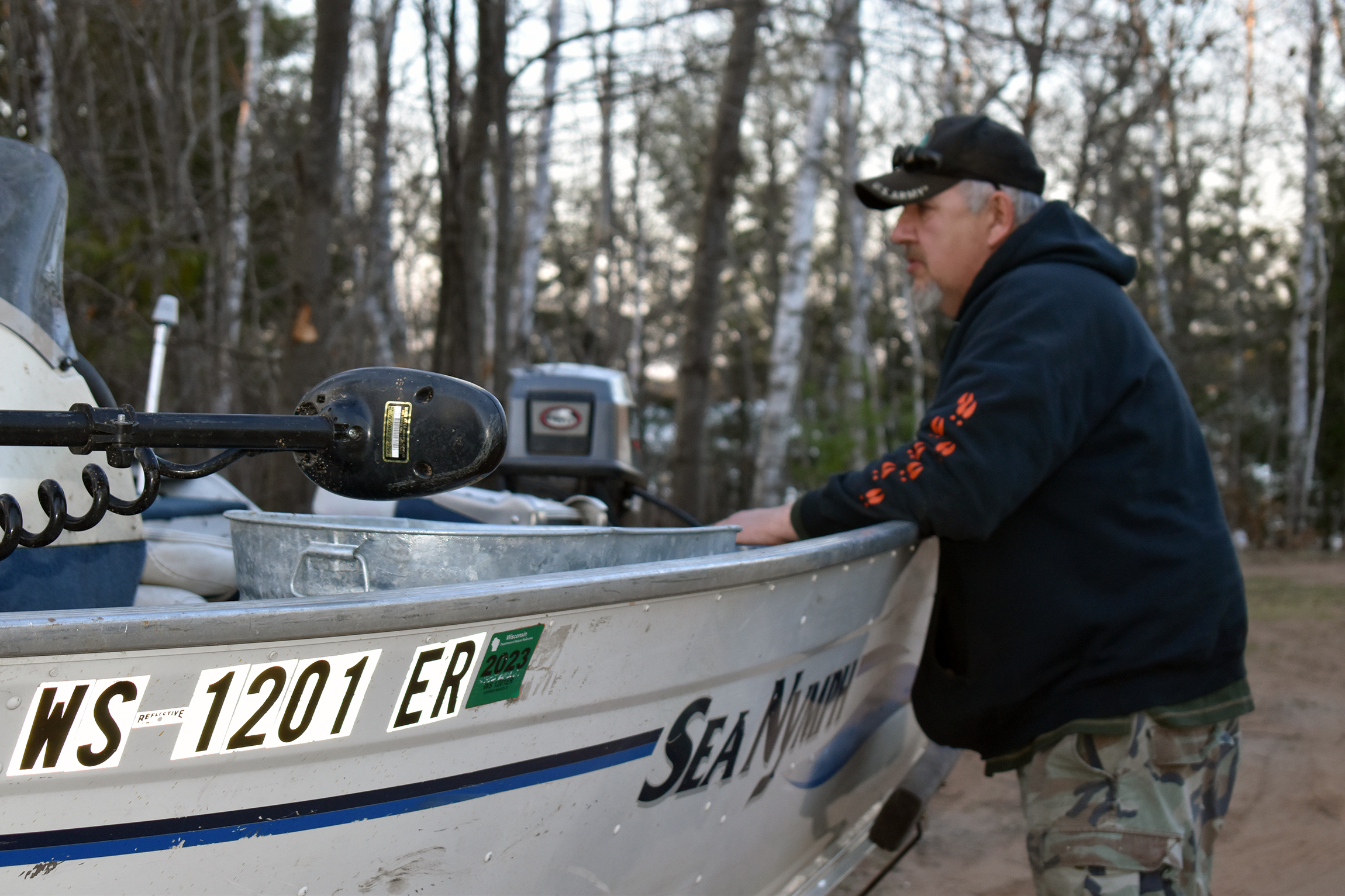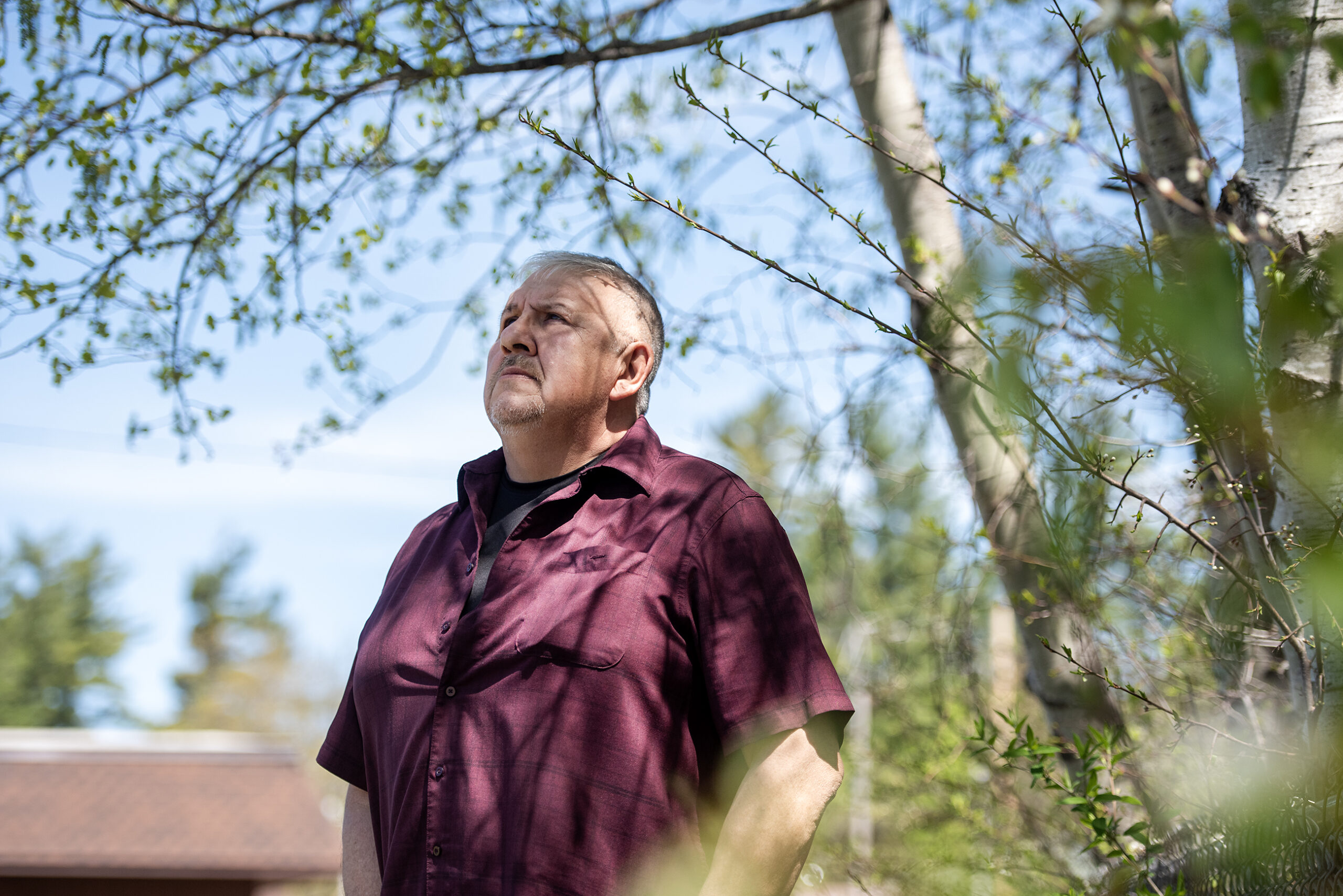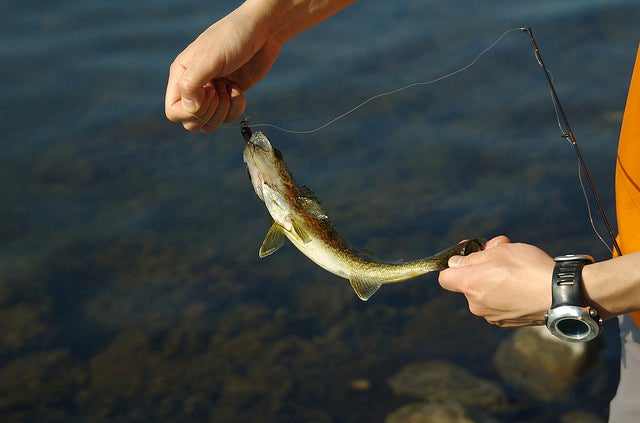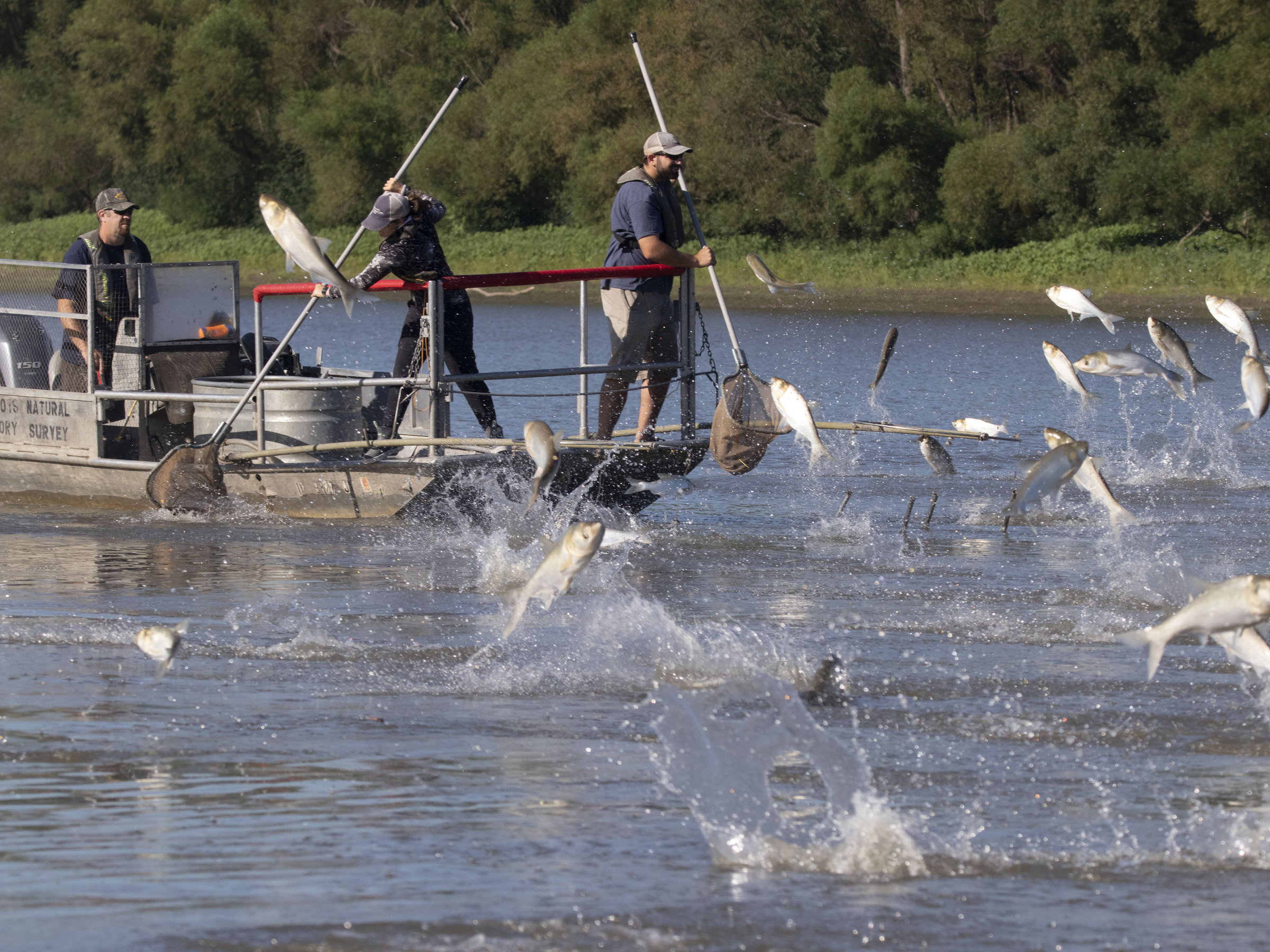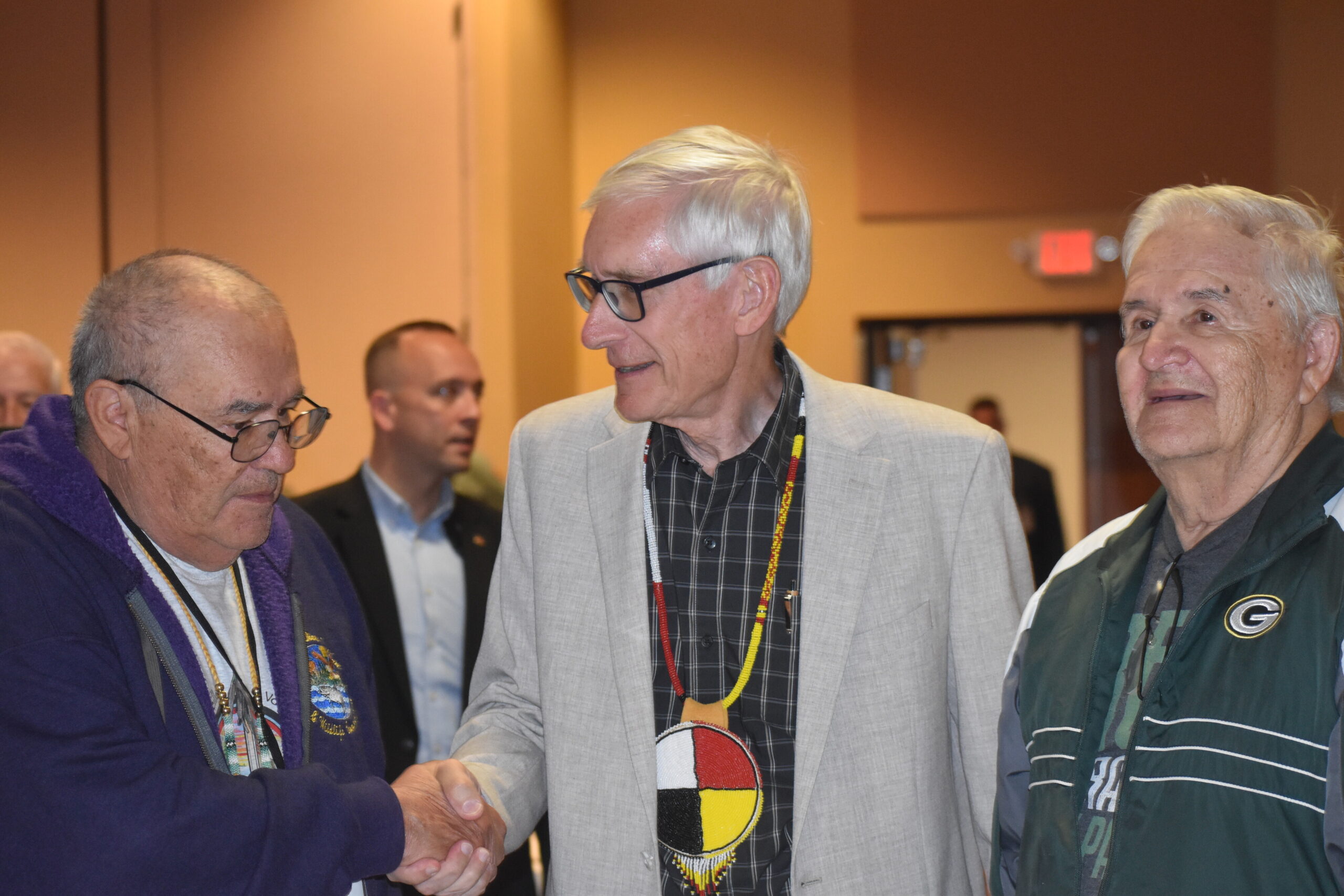This year marks the 40th anniversary of a landmark ruling that reaffirmed the 1837 treaty rights of a northern Wisconsin tribe to hunt, fish and gather on ceded territory.
In 1983, two brothers from the Lac Courte Oreilles Band of Lake Superior Chippewa, Fred and Mike Tribble, were arrested for spearfishing outside the boundaries of the tribe’s reservation. However, the tribe disputed the arrests in court and received a favorable ruling. This ruling became known as the Voigt decision.
In a recent interview on Wisconsin Public Radio’s “The Morning Show,” the tribe’s current president, John D. Johnson Sr., said the treaty rights reaffirmed by the Voigt decision could be challenged again as the state Legislature considers a gray wolf population management bill.
News with a little more humanity
WPR’s “Wisconsin Today” newsletter keeps you connected to the state you love without feeling overwhelmed. No paywall. No agenda. No corporate filter.
“Our tribes are ready to go down state and have conversations about this,” Johnson said. “Our leadership retained the rights to utilize everything in the Northwoods so we could sustain ourselves.”
Johnson said the tribes maintain more accurate records about the flora and fauna of the region than the state of Wisconsin and wolves do a lot to protect all humans.
“They’re a big part of our ecosystem. The woods are ravaged with chronic wasting disease and other diseases, and the gray wolf takes out these sick animals. When we go out and harvest, our protection from (these diseases) is from them,” he said.
Johnson spoke in depth about treaty rights, environmental policy and climate change when he joined “The Morning Show.”
The following was edited for clarity and brevity.
Kate Archer Kent: What legal questions remain 40 years after the Voigt decision?
John D. Johnson Sr.: Everybody wants to (ask), “Hey, how much fish did you guys take this spring? Why are you killing all these walleyes with spears?” and stuff like that.
If I go spearing, I’m not going to go out there and kill 1,500 fish and utilize them all by myself. I’m going to take care of other families. My grandsons know that. My kids know that. We’re going to do the best we can to sustain ourselves here in our reservation.
But last spring, I think Lac du Flambeau only took 12,000 fish. We were allotted 26,000. But the spring came so fast, we weren’t able to utilize it and get most of those fish. We had to sit back and just say, “Hey, next year is a different year.”
We understand climate change and everything else is going on, and we just try to take care of one another the best we can here with what we have for our treaties.
KAK: Where do the Great Lakes Indian Fish & Wildlife Commission and state Department of Natural Resources disagree on environmental policy?
JDJ: The standards we have on our reservations are higher than the state’s or the federal government’s concerning the protection of these beings that we have and utilize. I’m glad we’re talking about this today because that protection is so important to us. They help us make predictions, like how the birch trees and maple trees will be gone in 2050. We don’t want to see that happen.
We know about climate change, but we want the state and federal governments also to look at our standards and maybe mimic them so we can make the whole Northwoods here a great place to be for everyone. But we’ve all got to give and take a little.
KAK: You say your standards are higher. In what way? Can you give us a picture of that?
JDJ: We want to protect the lakes and the water. We want to keep them as clean as they can be… We’ve put people out on the boat landings to help us protect our waters so we can utilize them for the future… but then we’ll get this (invasive) Eurasian watermilfoil and stuff like that (coming) in with the boat, and now it’s going to be around forever. We don’t want it to kill off things in the lakes. We want our spawning beds back.
We try to keep everything going forward in a good way for the future generations. We’re teaching our younger ones to actually be respectful of what we have and how we can utilize it and move forward.
KAK: The Great Lakes Indian Fish & Wildlife Commission is managed by multiple tribes. How is communication among the tribes in the commission?
JDJ: It’s very good. We have a meeting once a month where we throw everything out on the table and we try to figure out how we can protect and preserve everything that we have in the ceded territories.
KAK: Do you find that similar issues come up again and again in your meetings, or do you address new things?
JDJ: We address new things, but I guess the old (issues) from back in the day, too. We always talk about fisheries and hunting. We talk about the bear, the wolf, the deer — whatever is up here that we can utilize in our territories. And we try to make it fair.
In the 42, 37 and 36 treaties, we retain those rights to hunt, fish and gather, but we also retain a 50/50 agreement over the say-so in our territory. But of all these things that we do take and (sustain) our tribes with — like hunting deer and stuff like that — we never, ever, ever came close to taking 50 percent of anything.
KAK: How does the Wisconsin State-Tribal Consultation Initiative work with state government agencies to maintain living standards for people on tribal lands and improve communication?
JDJ: We connect here every couple of weeks. I have a call with (DNR Secretary Adam Payne) just to check in on each other. We talk about treaty rights and the Lac du Flambeau Tribe. We have natural resources boards here, also, but we listen to our biologists and we only take what we need to survive.
We put quotas on ourselves in our area, lakes and reservations. But we also stock millions and millions of walleye and muskie each year. We have 260 lakes in the area on this little 12 by 12 reservation, and we have 20 miles of rivers and streams that we’re trying to protect.
KAK: Do you think the next generation will face more difficult problems than what your generation is facing?
JDJ: I think so. If we can’t collaborate down state or with the federal government, then they’re going to see more problems. But if we nip them in the bud right now and we work together, I think we can sustain all this.
Everybody knows that in the future, fresh water is going to be a hot commodity. It’s going to be worth more than gas and oil someday. I’m just glad that we have the Great Lakes and we’re trying to work together to take care of all of our inland lakes in the same way.
When we go out spearing or fishing or anything, we always put our asemaa down so the Creator knows where we are at that moment. And when the Creator blesses me with these things, we bring them home, we clean our fish, we take them either to drum services or we take them out into the community for the less fortunate that can’t get out.
My grandsons are learning this. They’re taking care of our community right now as we speak. They hunt, they fish, they gather, and it’s not all for us to keep and keep my freezers full. We have a lot of ceremonies here that we provide food for — like funerals. We’re supposed to have the four major food groups there.
My grandsons are learning this, and I’ve been teaching them since they were young boys, probably 4 or 5 years old. And now they’re getting to be teenagers. They’re between 12 and 17, and they’re out in the community taking care of others, but through treaty rights.
Wisconsin Public Radio, © Copyright 2025, Board of Regents of the University of Wisconsin System and Wisconsin Educational Communications Board.

